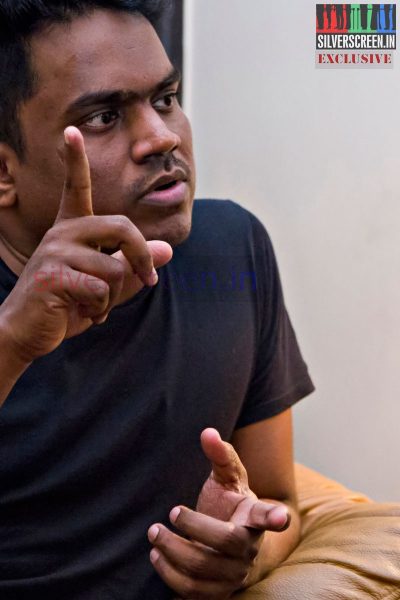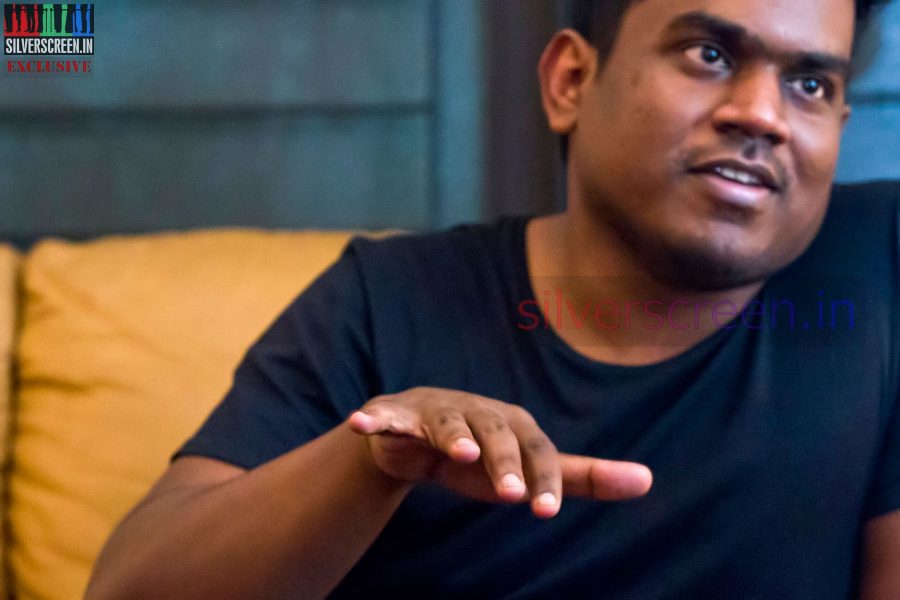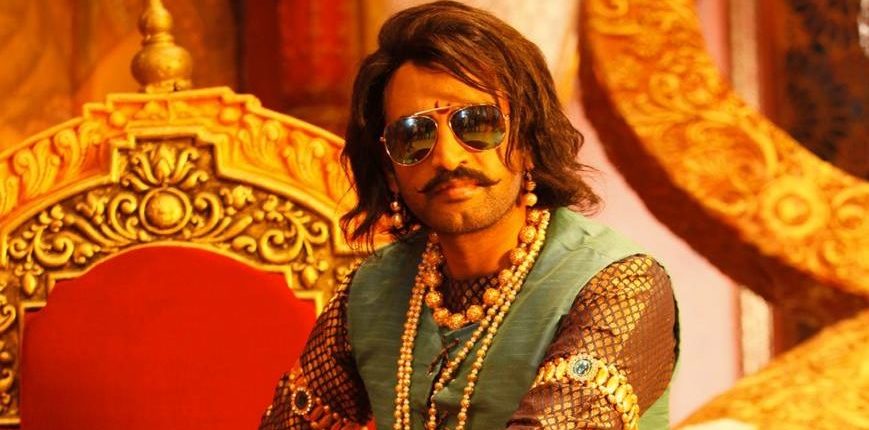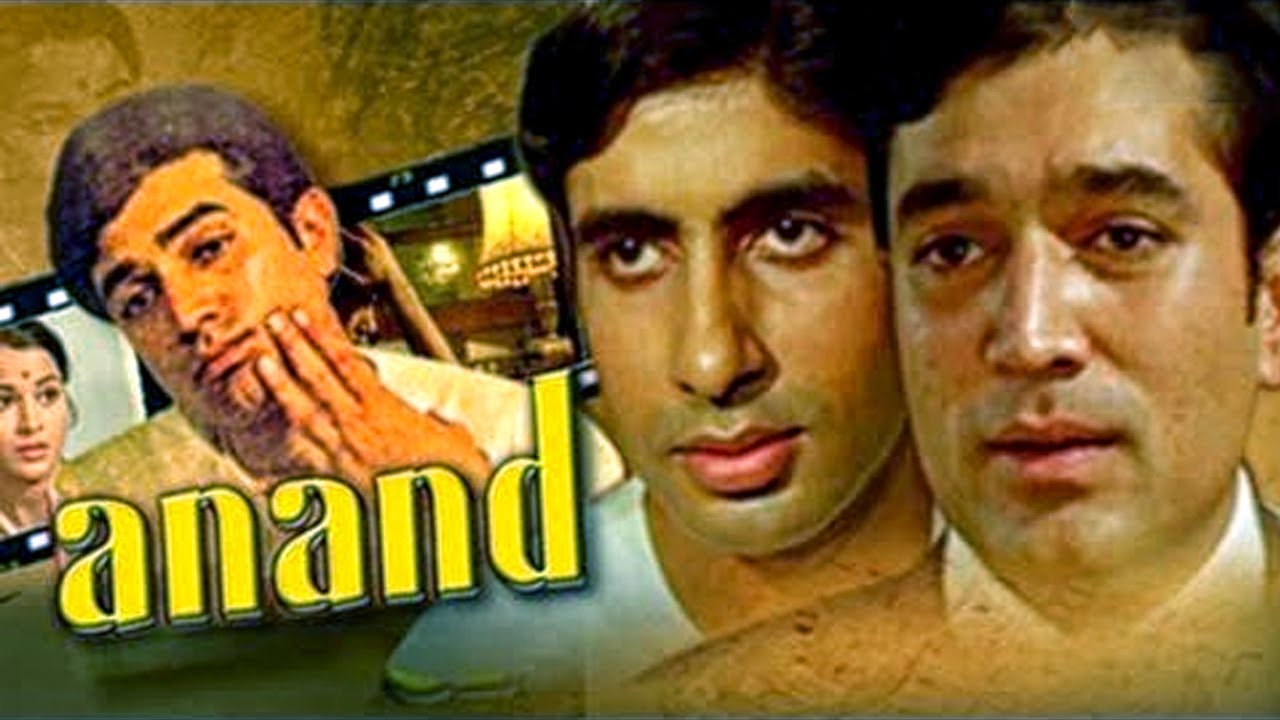Making music on a rainy day, dealing with criticism, finding solace in his fans..Yuvan Shankar Raja has a story to tell. And a very interesting one at that.
A grand old piano sits in the middle of Ilaiyaraaja’s spacious living room. The room is lined with large leather sofas, and there’s a picture of his recently passed wife on a wall.
We sink into one of the sofas as Yuvan Shankar Raja walks in sporting a casual black T-shirt and jeans, looking like he could easily pass for a 20 year old. When we tell him this, he laughs. Quietly.
Yuvan is not into drama. “It is not good for my head. It upsets my balance and messes with my composing. I’ve learnt to keep distractions to a minimum”. No television, or books either. His father, he adds, casually, wasn’t a big fan of TV; so what was once a strictly enforced rule, has become a way of life. “It’s a good thing. I know of people who are obsessed with the latest series and spend all their time discussing it. That’s not me. I devote all my time to making music and experimenting with sounds. And it gives me peace.”
Yuvan was never this reclusive, a term that has been increasingly used to describe him these days. He was something of a spoilt brat, he informs us ruefully, always dreaming up ways to skip school. “I wasn’t an obedient child, I’m afraid. I was the youngest, and naturally konjam neraya chellam veetla.” And his father used to despair about him, worry incessantly about the future. “I’ve made everyone angry at some point in their lives. It used to irritate my father no end, but my mother always rallied for me,” Yuvan narrates, “I remember, she used to tell everyone that I’d make it big. She always had faith in me and was my most ardent fan. I miss her now. Terribly.” His mother, Jeeva, passed away in 2011 after a sudden heart attack. “It was one of the darkest moments of my life. I felt abandoned and messed up. I still find it difficult to think about it, but it has gotten much better now. I have found something that gives me peace, and it has made my loss easier to bear.”
The constant media intrusion into his personal life notwithstanding – much was made about his recent conversion to Islam – Yuvan remains unfazed. There’s no point worrying about something you can’t control, he tells us sagely. “I was never fool enough to think I can control what is said about me. I have maintained a respectful relationship with the press and they have treated me in kind. Besides, we are both doing our jobs. It eventually comes down to that.” Having said that though, Yuvan does resent the rumours about a tiff with his father. “When I made the announcement on Twitter, there was this news doing the rounds that I had fought with Appa. Nothing could have been farther from the truth.” Yes, for a while, Ilaiyaraaja found it difficult to accept Yuvan’s decision, but he was still supportive of him. “He said he was uncomfortable with the path I chose. I was a little hurt by that, but I have to say, I coped well. I knew what I was doing would elicit a lot of negativity. I was prepared for it.”

IMG_2118_converted
Eventually, Yuvan obliges us. He’s inspired by ‘rain’, he says. Several of his best compositions, including his personal favourite, Kaatrukulle from Sarvam, were composed when it was raining. “That was a beautiful evening. Dark clouds…a little rain. Moody weather. I was in my studio for hours, recording the sounds in my head.” He also sang the song himself. “That was because it was a bad storm, and everyone was at home,” he grins cheekily, “So I took the plunge and sang for myself. It was well-received.”
But things were not always this rosy. His career has been riddled with criticism, and his music has been held to exacting standards. Yuvan attributes it to his genius father. “Appa set the bar very high,” he declares, “for every musician today. So as his son, you can imagine the amount of pressure I would face sometimes. Luckily, I have been able to tune out. With the help of my fans.”
At the beginning of his career, Yuvan composed music more for himself than anybody else. His fans weren’t part of the equation. “Making music was a cathartic process for me. I was a misunderstood 16-year-old rebel when I came into the industry. I desperately needed a release and found it through my songs.”
The success of Thulluvadho Ilamai brought him fame; he became something of an overnight sensation and a youth icon as well. The adulation was exciting in the beginning, but it soon overwhelmed him. “I had to wake up to the fact that I had fans now. People who would expect a certain kind of music from me. I struggled for a while, I didn’t want to be boxed in,” he states candidly, “but I soon learnt that they were alright with any kind of music I made.” The realization liberated him. A string of successive hits followed, and his fan-base grew. There seemed to be a Yuvan song for everything. And in a strange way, had even played cupid to many couples. “That is so true. I have had fans telling me that my songs were the highlight of their relationship. I’m humbled by it all. I also find it really cool.”
[soliloquy slug=”yuvan-shankar-raja-interview”]
Yuvan Shankar Raja wants to do a few things this year. First, to score the soundtrack for his cousin Venkat Prabhu’s Masss. Having been busy with Anjaan promotions and the release of his debut Bollywood movie, Raja Natwarlal, he hasn’t had any time to concentrate on the album. “Masss will have a quirky soundtrack. It will be light and fun, very different from the work I’ve done till now.” It’s easier, he says, to compose music in his head. He’s almost done with the Masss album, technically. In his head. “Of course, I’m yet to begin recording, but I know what kind of sounds I’m going to incorporate in it.”
Recommended
The next goal, he tells us, is to use the old piano in one of his compositions purely for ‘sentimental reasons’. “It was used by my father’s music teacher. Appa had it in the studio for the longest time, but recently decided to bring it home. I’m itching to use it for a song, but the right one hasn’t come up yet.” He is also toying with the idea of roping in an international singer for a solo in his next album. Nothing has been finalised yet, but it’s been a dream of his ever since he tried to bring in Shakira for Billa 2, and failed. “There’s not much of a story there. Two words. Budget troubles!” he shrugs.
As we finish up, Yuvan is getting ready to record a video for actor Vishal’s birthday. He takes a couple of minutes to think of something and soon launches into a five minute speech about the actor. He’s a huge fan of Vishal. Wouldn’t he want to become an actor as well, sometime? we ask as we part.
“No no…I want to leave that to the experts. For now, I’m happy with my special appearances in songs and music videos!”
The Yuvan Shankar Raja interview is a Silverscreen exclusive.



